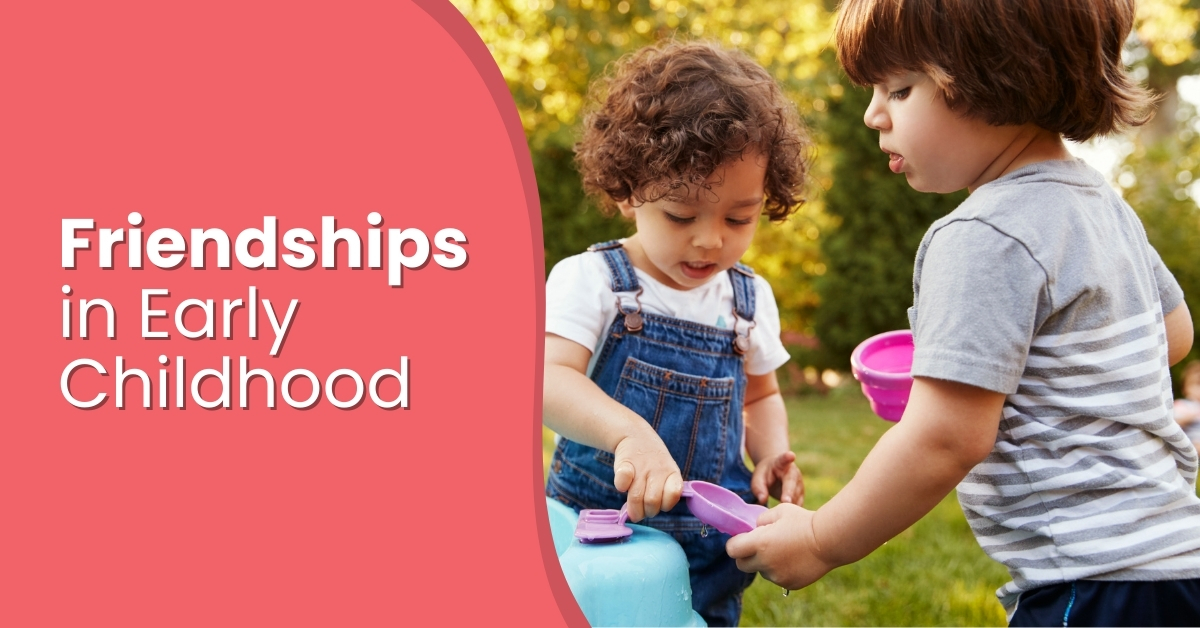
幼児期は、子どもが少しずつ社会性を身につけ、人とどう関わっていくかを学び始めるとても大切な時期です。
この時期にできるお友達とのつながりは、社会性だけでなく、心の成長にも大きな影響を与えてくれます。
幼稚園や保育園に通い始めると、同学年の子どもたちと過ごす時間が増えます。そんなとき「うちの子はちゃんと友達と遊べているかな?」と、気になる保護者の方も多いのではないでしょうか。
3~4歳ごろになると、おしゃべりが上手になり、まだまだ自分中心ではありますが、お友達と一緒に遊ぶことの楽しさを感じられるようになります。
そして5~6歳ごろになると、言葉でのやりとりがさらに活発になり、相手を思いやる気持ちが芽生え、友達関係もしっかりとしたものになっていきます。もちろん、その中でケンカやちょっとした行き違いを経験することもあります。
お友達関係で悩んだときは
お友達と関わる時間が増えると、楽しいことばかりではなく、ケンカをしたり、嫌な思いをしたり、悲しくなる出来事も出てきます。逆に、自分が相手を傷つけてしまうこともあるかもしれません。
もし園で一人で遊んでいたり、家に帰ってから元気がなかったりすると、「もしかしてうまくいってないのかな?」と心配になるのは自然なことです。でも、そんなときこそ、まずは少し距離を置いて見守ってみることも大切です。
お友達が多いから良い、というわけではありません。中には、一人で遊ぶのが好きな子もいて、その時間をとても楽しんでいることもあります。
また、お友達とのちょっとしたトラブルは、人との関わり方を学び、成長していくための大切な経験です。大事なのは、子どもの気持ちに寄り添い、「話しても大丈夫」と思える安心感を与えてあげることです。
ただし、トラブルが続いたり、内容が心配な場合は、遠慮せず幼稚園や保育園の先生に相談してみてくださいね。
Friendships in Early Childhood
Early childhood is a very important stage, when children gradually develop social skills and begin learning how to interact with others. The friendships they form during this time influence not only their social development, but also their emotional growth.
When children start attending kindergarten or nursery school, they spend more time with peers of the same age. At this stage, many parents may find themselves wondering, “Is my child getting along well with friends?”
Around ages 3 to 4, children become more talkative. While they are still largelyself-centered, they start to enjoy playing together with friends. By ages 5 to 6, verbal communication becomes even more active, empathy toward others begins to emerge, and friendships become more stable. Of course, along the way, disagreements and small misunderstandings are also part of the experience.
When Your Child Struggles with Friendships
As children spend more time with friends, it’s not all fun and games—arguments, hurt feelings, and moments of sadness can happen. Sometimes, your child might even be the one who unintentionally hurts someone else.
If you notice your child playing alone at school or seeming unusually quiet at home, it’s natural to worry and wonder if something is wrong. However, in such situations, it can be important to take a step back, and watch from a little distance before intervening.
Having a large number of friends isn’t necessarily better. Some children truly enjoy playing alone and find happiness in that time. Minor conflicts with friends are valuable experiences that help children learn how to navigate relationships and grow as individuals. What matters most is staying close to your child emotionally, offering understanding, and creating a sense of security where they feel, “It’s okay to talk about it.”
That said, if conflicts persist or the issues seem serious, don’t hesitate to speak with your child’s kindergarten or nursery teacher.






